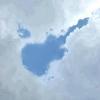maybe you say its a very childish question but its important to me. untill last few days i thought there are just indie turn based games that have simple idea.
i had never played any final fantasy game before. some day ago a firnd said the new ff game is awsome and....(lots of suggestions)
when i bought the game and i ran the game i saw lots of high quality aimations and ninja fights and..... it was obvious that there was lots of work on game visuals but after i was just getting sleepy, the game play started and i saw a monster is waiting for my attack :D and there is just a menu to choose and option. there is no dynamics no complex interaction. not sophisticated a.i at all. there are many anticipated games like this. like child of light, south park: stick of truth or divinity.
the big question is: these game are not like chess that needs thinking and tactics. just choose a magic or move. what is hidden and deep in these games that attracts many peoples specially critics. as a shooter fan and devlopper i find nothing important and exciting in these games. i like to know your answer and idea about thes games.
thanks










